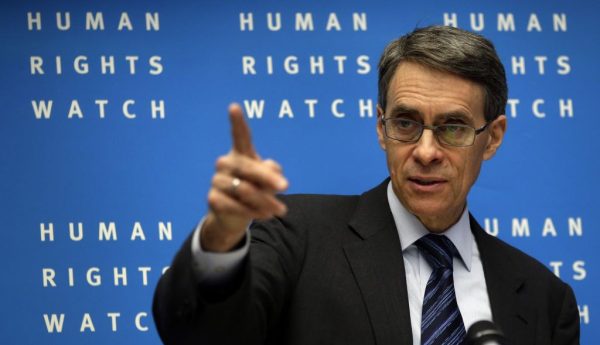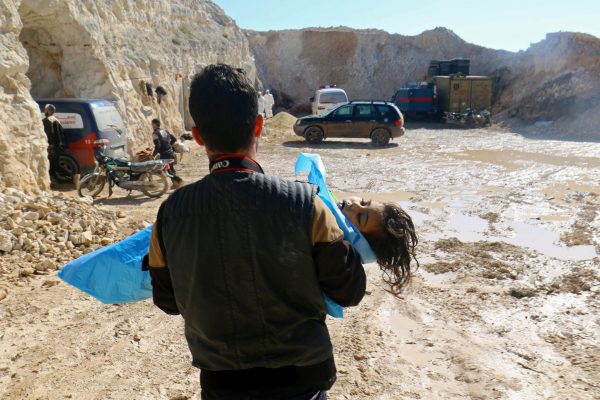
A suspected chemical attack on civilians in Syria is a war crime that bears the hallmarks of Bashar al-Assad’s government, but its ally Russia shares potential criminal responsibility for its use, the head of Human Rights Watch said on Monday.
Kenneth Roth, executive director of the activist group, said countries should consider putting pressure on President Vladimir Putin ahead of Russia hosting the World Cup in June, as Assad was already “a man who has no reputation left”.
The alleged poison gas attacks on rebel-held Douma over the weekend killed at least 60 people and wounded more than 1,000, a Syria medical relief group said on Monday.
“The use of chemical weapons is inherently a war crime. Add on top of that the people here who seem to have been targeted – which is typical for the Assad government – have been civilians,” Roth said in an interview with Reuters in his Geneva office.
“This use of chemical weapons against civilians sheltering in their basements is part of a broad pattern, not simply a pattern of chemical weapons use but a pattern of targeting civilians who happen to live in areas held by the opposition.”
These constituted grave breaches of the Geneva Conventions which should be prosecuted by the International Criminal Court (ICC) or by a future special court on Syria, said Roth, an American lawyer who has headed the group since 1993.
“CRIMINAL RESPONSIBILITY”

Russia has been the main ally of Assad providing men and military equipment in his seven-year fight against rebels.
Human Rights Watch has not been able to investigate on the ground. But some witnesses have reported that a Syrian government helicopter dropped a chemical cylinder that was later found, Roth said.
U.N. war crimes investigators have documented more than two dozen uses of deadly chemical weapons by Syrian government forces since the war began in March 2011.
“In the past he (Assad) has used chemical weapons, not so much for the large number of people they kill, but because they are terrifying weapons. They demoralize the enemy,” Roth said.
“There is no question that the Assad government is criminally liable for the war crime strategy of targeting civilians,” Roth said.
“I think a strong case can be made that Russia shares criminal responsibility for the war crime strategy pursued by the Assad government in targeting civilians.”
Allegations that Moscow poisoned a Russian ex-spy living in Britain last month led to diplomats being expelled and tough financial and travel sanctions against Putin-allied oligarchs, Roth said.
“I hope that people are thinking about what can be done with the World Cup approaching to put similar pressure on Putin to rein in Assad and his atrocities,” he added.
REUTERS

Leave a Reply
You must be logged in to post a comment.